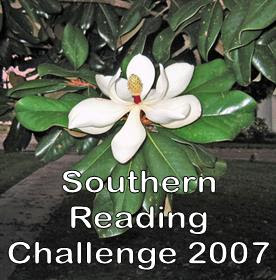
Did anyone else grow up in a house with
The Book of Knowledge, that children's encyclopedia that eschewed order, presenting poetry and stories and science and history and geography and religions and familiar things in a glorious hodgepodge style? I loved those books. They were my first introduction to Aesop and Lewis Carroll and Charles Dickens and Sinbad the Sailor and Jack and the Beanstalk and a whole slew of poetry.
Of course, my mother got rid of them just as soon as my back was turned, but I discovered yesterday that the university library had a 1912 edition of the books (ours were 1957s) down in compact shelving and I went in to work a little early so I could take a look at them.
Insect foes of man! The rise and decline of Turkey! Sir Tristram of Lyonnesse! How to Study the Weather! The Emperor's Nightingale! Making a Pair of Shoes by Hand!
And,
Alice in Wonderland, which is the reason why I had
The Book of Knowledge in my head in the first place (I first read
Alice in
The Book of Knowledge). I finished
The Looking Glass Wars Tuesday evening and read a couple interviews with Frank Beddor after that: I got the impression that he doesn't believe many children are reading
Alice these days and I don't have a clue as to whether he's right or not, but it depressed the hell out of me just thinking about it (which wasn't difficult considering I've been working on a reserve list for a women's studies class this week, article after article on domestic violence and sex trafficking and rape). And then I found the forums at Beddor's website, where kids claim they prefer this new Alice, er, Alyss, to the original, and it made me feel even worse.
World, I am officially now an old fogey.
Alyss is a princess, the future ruler of Wonderland, and she's celebrating her 7th birthday when her psychopathic aunt Redd stages a coup at the beginning of
The Looking Glass Wars, killing both her parents in the process. Alyss escapes to Victorian England via the Pool of Tears while bodyguard Hatter Madigan, who had accompanied her into the pool, finds himself emerging from a puddle in Paris. He'll spend the next 13 years traveling the world, battling those who wish to stop him with rotary blades that appear at his wrists and from his top hat, until he comes across Lewis Carroll's nonsense version of what he recognizes is Alyss' own story. He locates Dodgson, reduces him to a stammering whimpering mess, and learns that Alyss, on the verge of marriage to a prince (after a brief stint as a Dickensesque street urchin, she's been adopted by the Liddell family), is currently at Kensington Palace. Cornered by palace guards and dogs, Madigan puddle-jumps back to Wonderland and alerts the small band of loyal Alyssians that their queen is still alive and soon to return.
A spy warns Redd that Alyss is still alive, and after taking one of her cat assassin's remaining lives from him for telling her years earlier that he'd personally killed Alyss, she sends the Cat and card assassins through the Pool of Tears to kill her niece before she can return. Naturally there's no dillydallying about the world this time: the assassins emerge from a puddle within the Houses of Parliament where the royal wedding is taking place. And also naturally, Alyss makes it back to Wonderland via the loyal good guys and she quickly regains her powers of imagination (all ideas and inventions in
our world stem from the power source in Wonderland, a large Heart Crystal) and successfully passes through the Looking Glass Maze so that she can defeat her cartoonly evil aunt, but not so resoundly defeat that she cannot return for a sequel, due out this month.
It just wasn't my cup of tea.

This is the Alice of an author with a movie studio at his command, who writes in longhand (aww!) surrounded by high-concept art work commissioned on his ideas of Wonderland, no doubt listening to The Looking Glass Wars soundtrack, plotting the movies and the roller coasters still required to make his vision complete.
There wasn't enough clever word play to offset the violence in Beddor's world and anyway, when I read I'd rather whet my imagination on a stone that isn't designed as part of a walkway leading to a roller coaster.
Yes, I am officially
old.
You can find me in the basement of the library, gathering up an armload of 1912 children encylopedia volumes, when I'm not at the kitchen table, reading Lewis Carroll over my morning oatmeal.
Watch out, or I'll kick you down the stairs.
(And in case you're wondering, the illustrations are from
The Book of Knowledge.)









